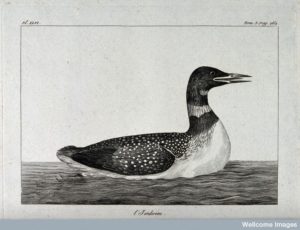Great Northern?
Paul Jeorrett visits Shetland and is transported back to a classic book from his childhood
I am writing this overlooking the harbour in Scalloway, Shetland. It is approaching 11 in the evening, and there is no need for any lights as we are in the middle of the Simmer Dim, when the sun barely sets in July at this latitude.
This is my first visit to Shetland, and I wonder why it has taken me nearly 60 years to get here! There is beauty everywhere: the cliffs, the white sand beaches, the incredible wildlife, the history and, of course, the weather. Unusually there has been little rain, almost continuous brilliant sunshine and blue skies, a rare thing in these parts. Civilisation begins in the capital Lerwick and then filters out across the 100 or so islands in the archipelago, down perfect single-track roads, usually winding up with the sound of the sea, the calls of birds and the odd sigh from a seal or two. Yesterday I reached the very northernmost part of mainland Shetland at a place called Fethaland, with the North Atlantic on the west and the North Sea on the east.
Between the cliffs on the headland there are a handful of inland lochs. On one of these lochs I spotted a family group of three birds in the distance. I had already got excited on previous days when I saw red-throated divers, and now this seemed like a group of two adults and a chick – but not red throated; they had black upper sides and white bellies. Could they be great northern divers?
I believed this all the way to the bird identification book back in the car, which assured me that the great northern diver hasn’t bred in the UK for some time, if ever – but it was definitely a black-throated diver, and seeing a family group is definitely up there for ornithological sightings.

What has this got to do with books? I hear you ask. Way back when I was at primary school in the 1960s, our headmaster Mr Chitty would take the last hour of each day to read to us. One of his favourite authors was Arthur Ransome, and we heard many of the Swallows and Amazons series. One that came to mind on seeing the divers yesterday was the last in the series of 12 books: Great Northern?
Published in 1947, this book brings together the three families of Swallows (the Walker family), Amazons (the Blackett sisters) and Ds (the two Callums) from the previous books. The adventure is set in the Outer Hebrides; whilst sailing with Captain Flint, the children spot a bird on a loch (does this sound familiar?) – could it be a great northern diver? The children then set out to protect the birds from an egg collector. I won’t spoil the ending but, just for a moment, up in the northern reaches of Shetland, I suddenly felt I was living this book from my childhood for a few moments.
It strikes me how important being read to is; in my case, an event triggered a memory of a story that I had heard 50 years before. I am sure that my love of books and eventual career path in library work stems partly from my headmaster’s gift of reading to us every afternoon. Of course, listening to audiobooks is now becoming increasingly popular, allowing everyone to access books in a different way. The experience of listening to a story is subtly different to reading words from a page or screen but is no less immersive.
I was only a little disappointed that my divers were not great northerns but, over the few days I have been here, Shetland has more than compensated with an array of wonderful wildlife, from puffins through to close encounters with seals and even a minke whale. I am now going to return to the printed page and start reading a new book, The Seabird’s Cry by Adam Nicolson, which promises to be the perfect combination of science and storytelling in the great tradition of British nature writing. I am sure I will be talking about it and my visit to Shetland on Calon Talks Books very soon.
[Editor’s note: You can now listen to Paul talk about his Shetland experiences on Calon Talks Books via SoundCloud.]
© Paul Jeorrett 2017
